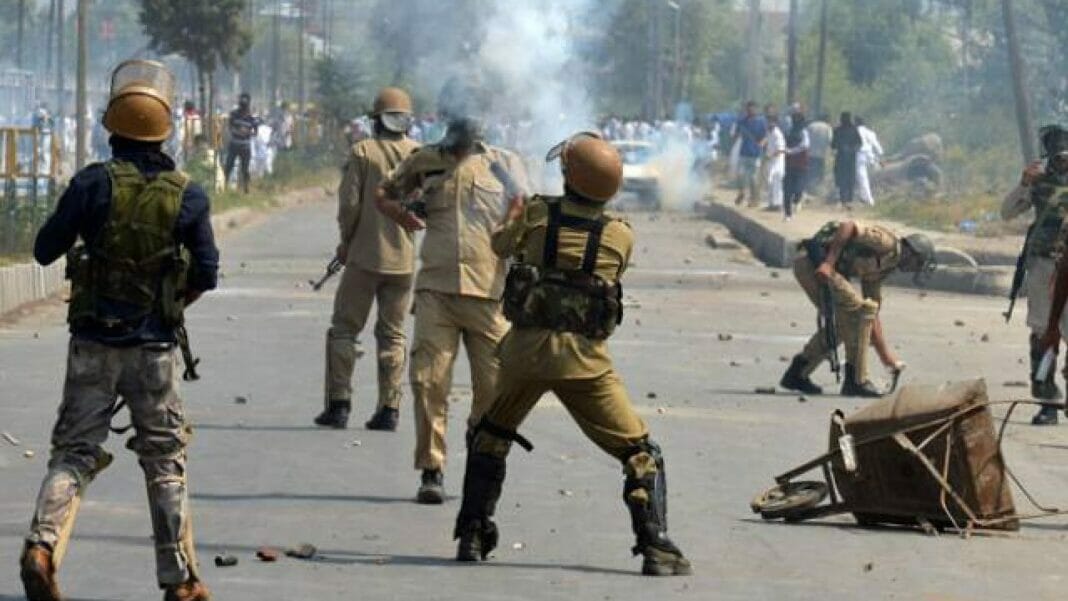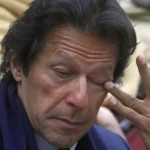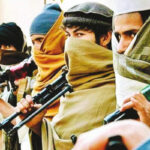There seems to be an endeavor to prove that we can do without Kashmir and it should not be central to our relations with India. People have quoted from history, that it was we who invaded in 1948, sending in tribesmen into Kashmir and that India was justified in sending troops at the request of the Maharaja and Hyderabad was offered in exchange etc.
Here are some facts:
The Radcliffe Award was announced on 17th of August after having kept it secret. The main controversy was around the Gurdaspur issue. The Pathankot tehsil was predominantly Hindu, while the other three tehsils were Muslim majority. In the event, only Shakargarh was awarded to Pakistan. Pakistanis have alleged that the award of the three tehsils to India was a manipulation of the Award by Lord Mountbatten in an effort to provide a land route for India to Jammu and Kashmir
Here lies the first contradiction.
In the case of Junagadh, on 15th August 1947, the State declared the State’s accession to Pakistan and informed Government of India on 12 September 1947. Mountbatten warned Jinnah that Pakistan’s acceptance of accession was in ‘utter violations of the principles on which the partition of India was agreed upon and affected’. On the 17th of September 1947, India deployed troops for the maintaining law and order in Kathiawar and following a police action, held a plebiscite which was overwhelming in favor of accession to India.
In Hyderabad’s case, the Nizam was interested in remaining independent or acceding to Pakistan, but was warned by Mountbatten not to take any of those courses and there were advantages in joining India. In the face of growing threats, the Nizam sought urgent attention of the United Nation Security Council, but before the Nizam’s appeal could be taken up, India physically attacked and took over the State. A similar situation also was there in the case of Jodhpur.
In the case of Kashmir, there was a Muslim majority of 78% and in the valley, itself it was 93%. Besides this geographical contiguity of the State was with Pakistan; for example, the only road and rail link with the outside world lay through Rawalpindi and Sialkot. In early 1947, many delegations travelled to Kashmir on behalf of the Indian Congress to convince the Maharaja to accede to India. By late July, Maharaja ordered the depositing of arms that belonged to his Muslim subjects and next he ordered the disarming of the Muslim personal of his Army.
By late August, Rashtriya Swayam Sewak (RSS) and Sikhs began to pour into Jammu resulting in tension right up to Poonch. The Muslims resisted this and a guerilla movement developed, which drew its strength from 70,000 Poonchies, who had served in the British Army in WW2.
This is how trouble in Kashmir began.
It resulted in a genocide that exterminated 237,000 Muslims, half a million had been disintegrated and 200,000 simply vanished, while many fled to Pakistan. The Muslim guerilla attacked the Maharaja’s forces where they could and an indigenous resistance began. The Pathans, motivated by the sentiments of a holy war, entered Kashmir to help their co-religionists on 21/22 October 1947. On 24th, the Maharaja appealed to the Indians for military help. On the 27th of October, Mountbatten wrote to the Maharaja that India had accepted his request for accession.
This was in utter violation of his own warning to Jinnah on the Junagadh matter earlier.
This is the second contradiction.
The Instrument of Accession signed by the Maharaja on 26th of October, and accepted by Mountbatten on 27th of October, is considered a fraud by Pakistan.
It is no surprise that the Indian Army entered Kashmir on 27th of October, the day the Instrument was accepted. Nevertheless, on October 30th, Nehru addressed Liaquat Ali Khan through a telegram:
“Our assurance that we shall withdraw our troops from Kashmir, as soon as peace and ordered are restored, and leave the decision about the future of the State to the people of the State is not merely a pledge to your government, but also to the people of Kashmir and the world.”
This is the third contradiction.
On January 1st, 1948, India took the question of Kashmir to the United Nations. Most delegates had an unfavorable view of the Indian draft that included Noel-Baker of the UK, Mr. Austin of the USA, Mr. Tsiang of China and the Argentinian delegate said, ‘It is worthwhile remembering the Latin Proverb, ‘sublata causa, tollitur effectus, or in other words, remove the cause and the effect will disappear. In this case, the cause of all disturbances, whether from India or Pakistan, or from the tribes, lies in the rebellion of the people of Kashmir against the absolute monarch who rules them as if he is running a farm and the 4 million inhabitants were so many heads of cattle and not human beings.’
The Indian Army commenced with its offensive on 13th April, 1948 after the snows had melted. They did not inform the United Nations’ Commission about this material change. Pakistani troops intervened on the orders of General Gracey, who said it is ‘imperative that the Indian Army not be allowed to advance beyond line Uri-Poonch-Nowshera.’ This is the general line of control (LoC) today, altered at places by the ’65 and ’71 wars. Sir Zafarullah observed, ‘Anyone responsible for the security of Pakistan who did not at least do that should have been impeached and executed.’
This is the fourth contradiction.
Now we come to the third factor – wars.
Having validated that it was not the Army that initiated war in Kashmir in 1947, we move on to 1965. The continuation of the Kashmir conflict, with the Indian refusal to hold a plebiscite, led to an infiltration offensive into Kashmir by Pakistan in frustration. True, Ayub Khan, who was also the supreme commander and a Field Marshal, but he was the President and this was a government initiative, not a military one, whose biggest supporter was Zulfiqar Ali Bhutto. In response, the Indians crossed the international border and launched an offensive against Pakistan, which was halted. The military did not win but neither did it lose, by that reckoning.
The 1971 war was totally an Indian initiative, and was the outcome of subversion undertaken by an Indian initiative. Pakistan lost East Pakistan, but it was not purely a military defeat, and was a disaster in the making for years. However, it does not point towards an India centric mindset, as much as it does of India’s involvement in truncating Pakistan. After the fall of Dhaka, Indira Gandhi boasted: “We have taken the revenge of a thousand years” and “we have drowned the two-nation theory in the Bay of Bengal.”
Similarly, India’s own view point needs to be taken into consideration related to Kargil.
Now, this is a factual record of how things unfolded and does not hold personal opinions or views.
People who preach the Indian version forget it is about the ‘right to self-determination’ in Kashmir, which is something that cannot be wished away by technicalities.
‘The only thing necessary for the triumph of evil is for good men to do nothing,’ Edmund Burke said.
What is happening in Kashmir is not a product of the Establishment, just as Kulbashan was not. Unnecessary interference in Afghanistan, by an undue Indian presence cannot be ignored.
India needs to discuss these matters bilaterally, honor its own commitments to the people of Kashmir and to stop the genocide its undertaking today in the Vale of Kashmir, is not just an Establishment need, but a national cause.
I was constrained to bring up these matters from history, because people quote from history and supplement their arguments with selective quotes. They use these against the military and hope that by restraining the military, its budget or its concerns, India can be befriended.
However, my advice to those who feel that India is a moderate country looking forward to a better relation with Pakistan: just try and arrange a cricket match with them for starters, in India or Pakistan, your choice and maybe the truth will dawn.
Lt. General Tariq Khan (Retired), an erudite general from Pakistan’s Armored Corps and a decorated War Veteran, is an expert on critical issues related to Terrorism & Insurgencies. General Tariq Khan during the Battle of Bajaur, transformed and re-shaped Frontier Corps into a relentless fighting force and raised FC’s own special forces popularly known as SOG. Commanded and led major operations in FATA from the frontline, his model on counter-insurgency is still applied to this day.
Lt. General Tariq Khan (Retired) leads CommandEleven’s Board of Advisors as our Patron-in-Chief.








